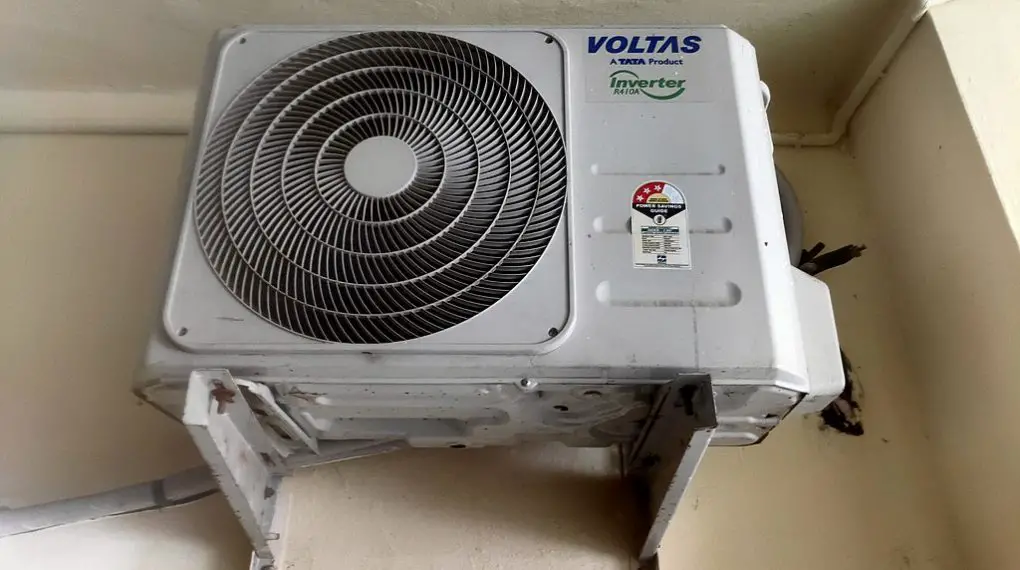How to test AC compressor might sound like a technical challenge. But with some patience and a little know-how, it’s something you can tackle at home. Proper testing of an air conditioning compressor is key to ensuring your unit operates efficiently. In this guide, we’re going to walk you through each step of the process.
Understanding the proper procedure to test an air conditioning (AC) compressor is crucial for maintaining your cooling system’s overall efficiency. The testing process involves a few steps, which include observing the unit’s behavior, using a multimeter to test electrical components, and possibly checking the refrigerant level. Now let’s dive into the details.

Table of Contents
Steps on How to Test AC Compressor
Ready to play detective with your AC compressor? We’ve got your back. Here’s a step-by-step guide to testing it.
Safety Measures Before Testing
Remember, safety first! Dealing with electricity can be risky, so it’s essential to take a few precautions before you begin.
Powering Off the AC Unit
Before you even think about testing your AC compressor, make sure the unit is powered off. It’s a small step that can save you a lot of trouble – not to mention, keep you safe.
Wearing Safety Gear
When testing your AC compressor, gear up with safety glasses and insulated gloves. It’s always better to be safe than sorry.
Visual Inspection
Before diving into electrical testing, a simple visual inspection can tell you a lot about your AC compressor’s health.
Checking the AC Compressor for Visible Damage
Look for signs of damage on the compressor unit. This could include signs of overheating, such as discolored or burnt wires. Any visible damage can be a clear indicator of an issue.
Observing for Leaks
Keep an eye out for any signs of refrigerant leaks. If you spot a greasy or oily area around the compressor, it could be a sign that refrigerant is escaping. Remember, a healthy compressor doesn’t leak!
Electrical Testing
Now, it’s time to bring out the big gun: your multimeter. This tool is indispensable when testing your AC compressor.
How to Use a Multimeter to Test AC Compressor
Set your multimeter to resistance mode and place its probes on the compressor terminals. If you get an infinity reading, your compressor is in good health. If not, there may be an issue.
Testing the AC Compressor Capacitor
The capacitor gives your compressor the initial boost it needs to start up. Using your multimeter, you can test if it’s storing and releasing electricity as it should.
Testing Refrigerant Levels
Refrigerant is the lifeblood of your AC unit. Ensuring it’s at the right level is crucial to your compressor’s health.
Understanding the Importance of Proper Refrigerant Levels
Low refrigerant levels can cause your compressor to work overtime, leading to possible overheating and damage. Conversely, too much refrigerant can cause high pressure and lead to compressor failure. It’s all about finding that sweet spot!
How to Test Refrigerant Levels in an AC Compressor
You can test refrigerant levels using a refrigerant pressure gauge. The readings should be within the range specified by your AC unit’s manufacturer. If they’re not, you’ll need to adjust the levels.
Check out these other related articles…
Car AC Compressor Lifespan: What Influences its Longevity
Car AC Compressor Types: Your Comprehensive Guide
Car AC Compressor Tensioner Pulley: Your Ultimate Guide
AC Compressor Drive Belt: Your Detailed Guide
Car AC Compressor vs Condenser: Uncovering the Difference
AC Compressor Smells like Burning Rubber: Causes & Solutions
Interpreting the Test Results
Now that you’ve got your test results, it’s time to interpret them. Let’s see what they’re telling us about your AC compressor’s health.
Normal AC Compressor Behavior
Knowing what’s normal for your AC compressor can help you spot when something’s not right. Let’s break down what you should expect to see in a healthy compressor.
Expected Noise Level
While it’s normal for an AC compressor to make some noise, it shouldn’t sound like a rock band in full swing. A soft humming or buzzing noise is generally a good sign.
Standard Electrical Readings
Standard electrical readings for your compressor will vary based on your specific AC unit. However, if your multimeter readings fall within the manufacturer’s specified range, that’s a good sign.
Optimal Refrigerant Level
The optimal refrigerant level for your AC compressor will be specified by the manufacturer. If your readings are within this range, your compressor is probably in good shape.
Identifying Problems
Are the test results not looking so great? Don’t panic. Let’s decipher what those irregular readings might mean.
Indicators of AC Compressor Failure
Indicators of compressor failure could include unusual noises, irregular multimeter readings, and low refrigerant levels. If your compressor shows these signs, it may be time for a replacement.
Interpreting Irregular Multimeter Readings
Remember, an infinite resistance reading on your multimeter is good. Anything else could indicate a problem with your compressor’s motor.
Detecting Low Refrigerant Levels
If your refrigerant levels are low, your compressor may be working overtime to compensate. Over time, this could lead to compressor failure. If you suspect a refrigerant leak, it’s best to call a professional.